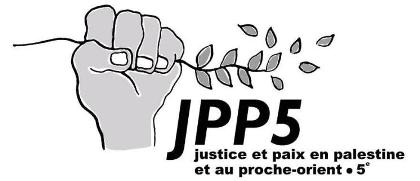
John Moore / GETTY IMAGES - Loyalists in Bahrain handed out posters of Prime Minister Khalifa bin Salman al-Khalifa at a gathering last month.
As Persian Gulf monarchs forcibly suppress street protests in the kingdom of Bahrain, the Obama administration has responded mostly with mild or muted objections — a sharp contrast from its demands for new governments in the republics of Egypt and Libya.
On Wednesday, President Obama phoned the kings of Bahrain and Saudi Arabia and urged them to show “maximum restraint.” In her sternest comments so far, Secretary of State Hillary Rodham Clinton called the crackdown in Bahrain “alarming,” and the State Department complained about the use of “excessive force and violence” against protesters.
But U.S. officials pointedly have not condemned a decision by Saudi Arabia and other neighbors to send tanks and troops into Bahrain, or Bahrain’s subsequent declaration of a state of emergency. In television interviews with CNN and CBS, Clinton said the intervening countries were merely “on the wrong track” and urged Bahrain’s rulers and the demonstrators to resume negotiations — a prospect that seemed highly remote as the crisis escalated.
The disparate reactions underscore the Obama administration’s reluctance to take a hard line with the Gulf monarchies, historically among the United States’ most steadfast allies in the Arab world. While the administration ultimately decided that the Washington-friendly presidents who ruled Egypt and Tunisia were expendable, analysts say, it appears to have concluded that it needs the kings to stay on their thrones, even if that means the silencing of those seeking freedom.
“We’re seeing what U.S. policy really is about now. It’s not about democracy, it’s not about regime change,” said Shadi Hamid, director of the Brookings Doha Center, a Qatar-based branch of the Washington think tank. “When we’re talking about the Gulf, it’s a whole different ballgame. The U.S. wants these regimes to reform and to see some changes, but it does not want to see them fall.”
Critics have accused the Obama administration of treading gingerly with the House of Saud for similar reasons. In addition to its resolutely anti-Iranian stance on most issues, Saudi Arabia is one of the world’s biggest exporters of oil.
Elsewhere, U.S. officials have recently offered fulsome praise for the kings of Morocco and Jordan, two key allies on counter-terrorism. The Obama administration has also continued to embrace the sultan of Oman and oil-rich emirs in the Gulf. While those monarchies have seen some public protests, demonstrations have been generally reserved.
U.S. officials and analysts said the Obama administration doesn’t put Arab monarchs in a different category than other Arab rulers, but instead makes an independent assessment of U.S. interests in each country. They noted that Washington is afraid of what might follow if Yemenis toppled President Ali Abdullah Saleh — another ally on counter-terrorism — but would cheer if protesters turned up the heat on Syrian President Bashar al-Assad, a longtime nemesis.
Robert Malley, the International Crisis Group’s program director for the Middle East and North Africa, said the White House has found it difficult to develop a coherent set of principles regarding democracy and freedom that it can apply consistently across the Arab world.
“A lot of people say this is an opportunity for us to match our values with our policies, but there are cases where the U.S. is finding it hard to reconcile the two,” said Malley, a State Department official during the Clinton administration. “But at some point, if our treatment of similar cases is seen as different by people in the region, we’ll undermine our moral case everywhere.”
Such a contrast manifested itself Wednesday in the secretary of state’s reaction to the events in two different Arab public squares, each a revolutionary icon.
On a visit to Tahrir Square in Cairo, the epicenter of protests that ultimately deposed President Hosni Mubarak, Clinton strode through the plaza and glad-handed Egyptian passersby, whom she praised for risking their lives.
“It’s just a great reminder of the power of the human spirit and universal desire for freedom and human rights and democracy,” Clinton said. “It’s just thrilling to see where this happened.”
Meantime, in Manama’s Pearl Square, Bahraini security forces fired tear gas and assaulted an encampment of demonstrators, whom officials derided as “saboteurs” and ”outlaws.” Five people were reported killed and more than 100 injured.
Clinton said that U.S. officials have “deplored” the violence in conversations with Bahraini officials. But unlike her endorsement of the Egyptian revolution she did not take sides in the conflict in Bahrain. “We believe that a long-term solution is only possible through a political process,” she said.
Some analysts said the cautious remarks reflected an internal debate among Obama administration officials over the degree to which it should — or can — influence the Arab uprisings.
“I think there are idealistic elements in the government, and it’s helpful to have an idealistic check,” said Jon B. Alterman, director of the Middle East program at the Center for Strategic and International Studies. “But you have to balance the idealism with an assessment of your abilities. It’s not constructive to say things that just make you feel good.”
whitlockc@washpost.com
Staff writers Joby Warrick and Richard Leiby and special correspondent Muhammad Monsour in Cairo contributed to this report.



